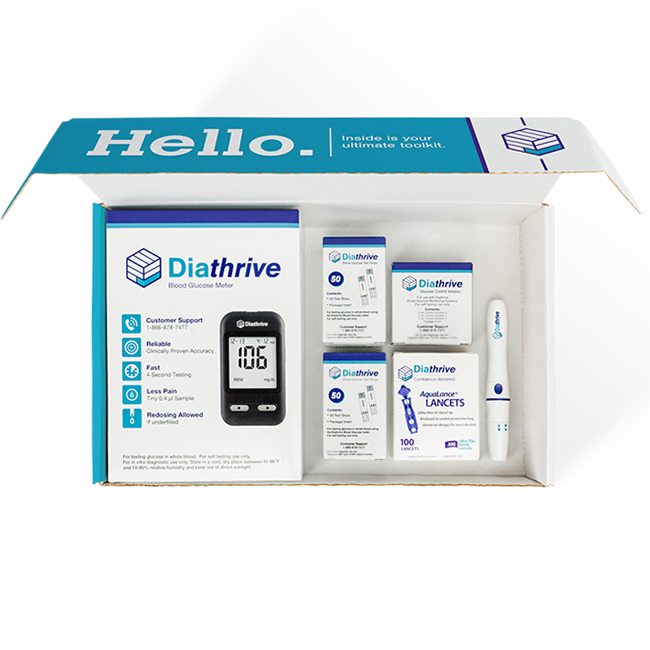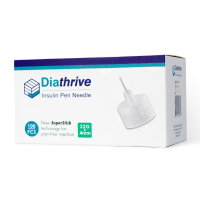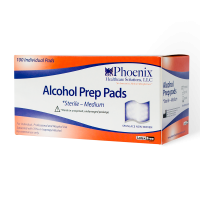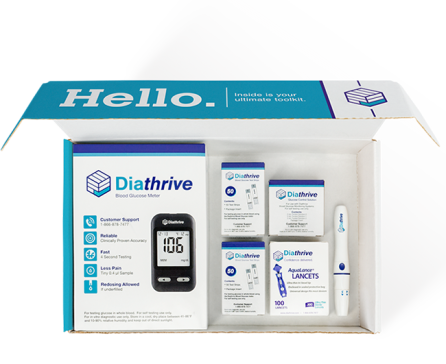
As you kick off your 2020 year with energy and enthusiasm for improving your overall health, here are some DOs and DON’Ts for creating goals.
Oh, the word “resolution” can be a little icky this time of year. There’s so much pressure and expectation of perfection that comes with the word “resolution.”
Diabetes is too complicated for resolute perfection.
Instead, let’s call these diabetes goals...because diabetes is a daily work-in-progress. A goal implies something you’re working towards rather than something you must suddenly do without fail.
As you kick off your 2020 year with energy and enthusiasm for improving your overall health, here are a few suggested Dos and Don’ts when it comes to creating those goals.
Do…
Focus on your daily food choices rather than the scale.
Weight-loss is not a quick and easy task. Instead, it really comes down to every choice you make throughout the day and how it adds up, bit by bit, to effect your bodyweight.
If you eat a healthy, mostly whole-foods diet Monday through Friday, and then you hop on the scale Saturday morning and discover the number is exactly the same as last week, it’s pretty likely that you’ll give up. It’s pretty likely that your frustration and feeling of defeat will lead you to binge-eating all day that same Saturday and probably on Sunday, too.
Instead, skip the scale.
Let your choices be the goal, not the number on the scale. Because over the course of 4 weeks, those daily healthy choices will pay-off. The pay-off just doesn’t usually show up as immediately as we wish they would.
Start with small changes in diabetes management tasks.
A common pitfall for any diabetes goal is expecting big overnight changes. For example, if you currently only check your blood sugar once a day or once every few days, it would be really overwhelming and unrealistic to expect that you start checking 4 times per day.
Instead, take little bite-size chomps out of your diabetes goals.
A few examples of realistic diabetes action goals:
-
Check your blood sugar once a day as soon as you get out of bed.
-
Eat one low-carb, whole-food meal every day.
-
Drink 16 ounces of water every day before lunchtime.
-
Eat a sugary food/drink no more than once per day.
-
Cook a whole-foods dinner three nights each week instead of take-out.
-
Drink two cups of coffee and then switch to water.
-
Go for a walk during your lunch-break twice every week in February.
Choose one of these goals rather than all of them to avoid getting caught up in setting unrealistic, overwhelming expectations.
Don’t…
Don't give up just because you got off-track for a few days.
This is a marathon, not a sprint. Evolving your habits around food, exercise, and diabetes management can evolve tremendously over the course of years but only if you get back on track every time things go awry.
Let’s imagine, for example, that you followed your nutrition plan for three days but when Thursday morning arrived, you gave in and ate two doughnuts for breakfast that a colleague brought to the office. You feel so disappointed in yourself that you eventually eat pizza for lunch, and get a milkshake from McDonald’s on your way home that afternoon.
Instead, the long-term success plan that anticipates imperfection focuses on getting back to your plan after the indulgent side-track doughnuts.
Okay, so you ate doughnuts for breakfast instead of your veggie omelet -- big deal. Acknowledge and own how you felt before you ate the doughnuts and how you felt after. Write it down. Was it worth it? Could you have lived without those doughnuts that morning?
And then...get back to your plan. Rinse and repeat. Eventually, you’ll find you get better and better at talking yourself through the slip-ups and through the moments when you’re tempted to go off-track.
Don't get caught up in extremes.
Nowadays, you can’t scroll through Facebook or Instagram for more than a few seconds before seeing another post about strict ketogenic diets or veganism or 100% clean-eating or raw-food-only diets.
These are extremes. They work for a few people and they have good intentions, but for many, they aren’t realistically sustainable and require a degree of unhealthy obsession to adhere to fully.
It’s okay if you’re not cut-out for an extreme “all or nothing” diet. In fact, beneath the cloak of social media, you’d likely find that many of the folks pushing those extreme diets are struggling in their relationship and obsession with food.
Let go of extremes. You don’t have to eat 100 percent perfectly or exercise 3 hours every single day in order to be healthy. Strive for a more realistic 80/20 or 90/10 approach to your health: 80 percent of the time making very healthy choices with room for 20 percent less-than-perfect choices.
For example, if you eat 4 or 5 meals every day, then a realistic goal would be to make sure that 3 or 4 of those meals are very healthy while 1 or 2 of those meals are more indulgent. Preventing deprivation, obsession, and crash-diet yo-yo-ing.
2020 is your year for growth! Just remember that growth doesn’t happen overnight, it happens centimeter-by-centimeter, inch-by-inch.





